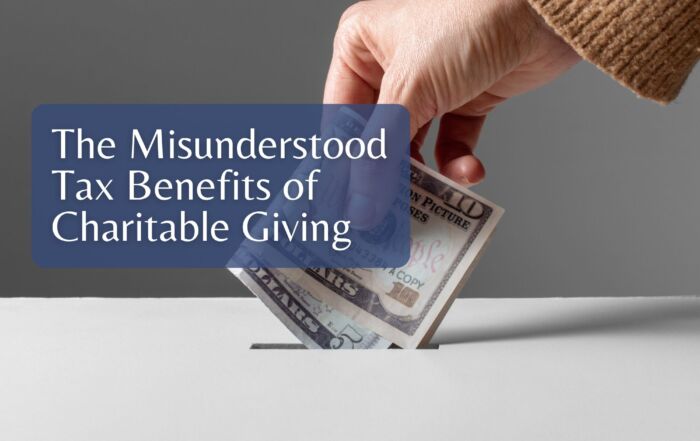How to Avoid Tax Settlement Scams

Tax settlement companies use the radio, television and the internet to advertise help for taxpayers in distress. If you pay them an upfront fee, which can be thousands of dollars, these companies claim they can reduce or even eliminate your tax debts and stop back-tax collection by applying for legitimate IRS hardship programs. The truth is that most taxpayers don’t qualify for the programs these fraudsters hawk, their companies don’t settle the tax debt, and in many cases don’t even send the necessary paperwork to the IRS requesting participation in the programs that were mentioned. Adding insult to injury, some of these companies don’t provide refunds, and leave people even further in debt.
Some taxpayers who filed complaints with the Federal Trade Commission (FTC) reported that, after signing up with some of these companies and paying thousands of dollars in upfront fees, the companies took even more of their money by making unauthorized charges to their credit cards or withdrawals from their bank accounts.
If you owe back taxes and don’t know how you’re going to pay the debt, the FTC (which is the nation’s consumer protection agency) says don’t panic, take a deep breath, and consider your options. If you are having trouble paying bills, it’s often better to try to work out a payment plan with the creditor yourself than to pay someone else to negotiate a plan for you. You don’t want to risk getting wrapped up in a tax settlement scam. The same is true when you owe money to the IRS or your state comptroller.
IRS Help for Taxpayers
If you owe taxes but can’t pay the IRS in full, consider submitting an Installment Agreement Request (Form 9465) with your return. In certain situations, the IRS can’t deny a request for an installment agreement if you owe less than $10,000. That said, you should still pay as much as you can with the return. You will be charged interest and possibly a late payment penalty on any tax not paid by its due date, even if your request for an installment agreement is approved. You can avoid IRS collection notices and actions, like a Notice of Federal Tax Lien or an IRS levy, by establishing an installment agreement upfront and making your installment payments.
If you owe back taxes, there are several IRS tax relief programs to help, including the agency’s Fresh Start initiative:
- An Installment Agreement is generally available to people who can’t pay their tax debt in full at one time. The program allows people to make smaller monthly payments until the entire debt is satisfied.
- Under its Fresh Start initiative, the IRS raised the threshold for streamlined installment agreements from $25,000 to $50,000 in tax debt, and the maximum repayment term from five to six years. Taxpayers who owe less than $50,000 may apply online with the IRS and don’t have to complete an IRS Collection Information Statement (Form 433-A, 433-B or Form 433-F).
- An Offer in Compromise (OIC) lets taxpayers permanently settle their tax debt for less than the amount they owe. The OIC is an important tool to help people in limited circumstances; taxpayers are eligible only after other payment options have been exhausted.
- Under its Fresh Start initiative, the IRS expanded the OIC program to cover a larger group of struggling taxpayers. However, the IRS will not accept an offer if it believes the liability can be paid in full as a lump sum or through an installment agreement. The IRS offers guidance on choosing a tax professional for an OIC on its website.
In very limited circumstances, the IRS may offer penalty abatement to people who haven’t paid their taxes because of a special hardship. If the taxpayer meets very narrow criteria, the IRS may agree to forgive the penalties. Interest abatement is even more limited and rarely provided. While these programs may eliminate penalties or interest, you still owe the taxes. If a tax relief company promises it can eliminate interest and/or penalties for you, be wary: there is limited relief available, no matter who represents you before IRS Collections. Their services should include a face-to-face meeting with you where they explain your options and their fee structure.
According to the IRS, you can apply for an Installment Agreement, OIC, or penalty/interest abatement without the help of a third party. If you prefer third-party assistance in negotiating with the IRS, only certain tax professionals — Enrolled Agents (federally-authorized tax practitioners who can represent taxpayers before all administrative levels of the IRS), Certified Public Accountants (CPAs), and attorneys — have the authority to represent you. Again, their services should involve a face to face meeting where they explain your options and their fee structure.
If you are asked to make an upfront payment for representation in a tax collection matter, carefully review the refund policy before signing any agreement. Also check to see if a default billing rate — a flat rate applied to the work of all employees at a firm, not only the tax professionals — will apply if you cancel the company’s services. A high default billing rate may quickly use up a large portion of your upfront payment, even early in the representation.
Contact the Taxpayer Advocate Service, an independent organization within the IRS, for free help if you are having tax problems that you haven’t been able to resolve yourself, if your problems are causing financial difficulties for you or your business, or you face an immediate threat of adverse collection action by the IRS. Call 1-877-777-4778 or visit irs.gov/advocate.
State Tax Relief Programs
The process for tax settlements with the states is very similar to the process with the IRS, although it varies from state to state. In some states, for instance, a taxpayer’s penalties can be waived, but interest cannot. In other states, interest can be waived, but penalties cannot. And in certain states, legitimate tax debt cannot be reduced at all. For more information, contact your state comptroller. For a state-by-state listing, visit the National Association of State Auditors, Comptrollers and Treasurers (NASACT) at nasact.org.
Don’t Fall for the Tax Settlement Scam
The IRS Office of Professional Responsibility targets questionable practices in the tax debt resolution industry. Report problems to the IRS on Form 14157, Complaint: Tax Return Preparer. The IRS Return Preparer Office will process the complaint and, if appropriate, submit it for investigation to the IRS Office of Professional Responsibility.
Behavior warranting a complaint to the IRS includes companies or individuals that:
- promise that you will get relief from tax liabilities;
- misrepresent how long it will take to process a debt relief request application; or
- omit relevant asset information on financial statements submitted to the IRS.
You also may file a complaint with the FTC online or by phone: call 1-877-FTC-HELP. The FTC enters consumer complaints into the Consumer Sentinel Network, a secure online database and investigative tool used by hundreds of civil and criminal law enforcement agencies in the U.S. and abroad.
Taxpayer Tips
If you owe back taxes and are having trouble meeting your tax obligation:
- Read your notices from the IRS or your state comptroller. Ask those agencies about collection alternatives.
- Save yourself some aggravation by ignoring promises from businesses that say you “qualify” for a tax relief program to resolve your tax debt. Only the IRS or your state comptroller can make that determination. Read the IRS Offer in Compromise Booklet, Form 656-B, and use this IRS online tool to see if you may be eligible for an offer in compromise.
- Think twice if the entire fee for services is requested upfront with no explanation of how services will be billed or whether a refund of unearned fees will be made.
Original Notice can be found here: http://www.consumer.ftc.gov/articles/0137-tax-relief-companies
President
Share This Story, Choose Your Platform!
Wiser Wealth Management, Inc (“Wiser Wealth”) is a registered investment adviser with the U.S. Securities and Exchange Commission (SEC). As a registered investment adviser, Wiser Wealth and its employees are subject to various rules, filings, and requirements. You can visit the SEC’s website here to obtain further information on our firm or investment adviser’s registration.
Wiser Wealth’s website provides general information regarding our business along with access to additional investment related information, various financial calculators, and external / third party links. Material presented on this website is believed to be from reliable sources and is meant for informational purposes only. Wiser Wealth does not endorse or accept responsibility for the content of any third-party website and is not affiliated with any third-party website or social media page. Wiser Wealth does not expressly or implicitly adopt or endorse any of the expressions, opinions or content posted by third party websites or on social media pages. While Wiser Wealth uses reasonable efforts to obtain information from sources it believes to be reliable, we make no representation that the information or opinions contained in our publications are accurate, reliable, or complete.
To the extent that you utilize any financial calculators or links in our website, you acknowledge and understand that the information provided to you should not be construed as personal investment advice from Wiser Wealth or any of its investment professionals. Advice provided by Wiser Wealth is given only within the context of our contractual agreement with the client. Wiser Wealth does not offer legal, accounting or tax advice. Consult your own attorney, accountant, and other professionals for these services.





